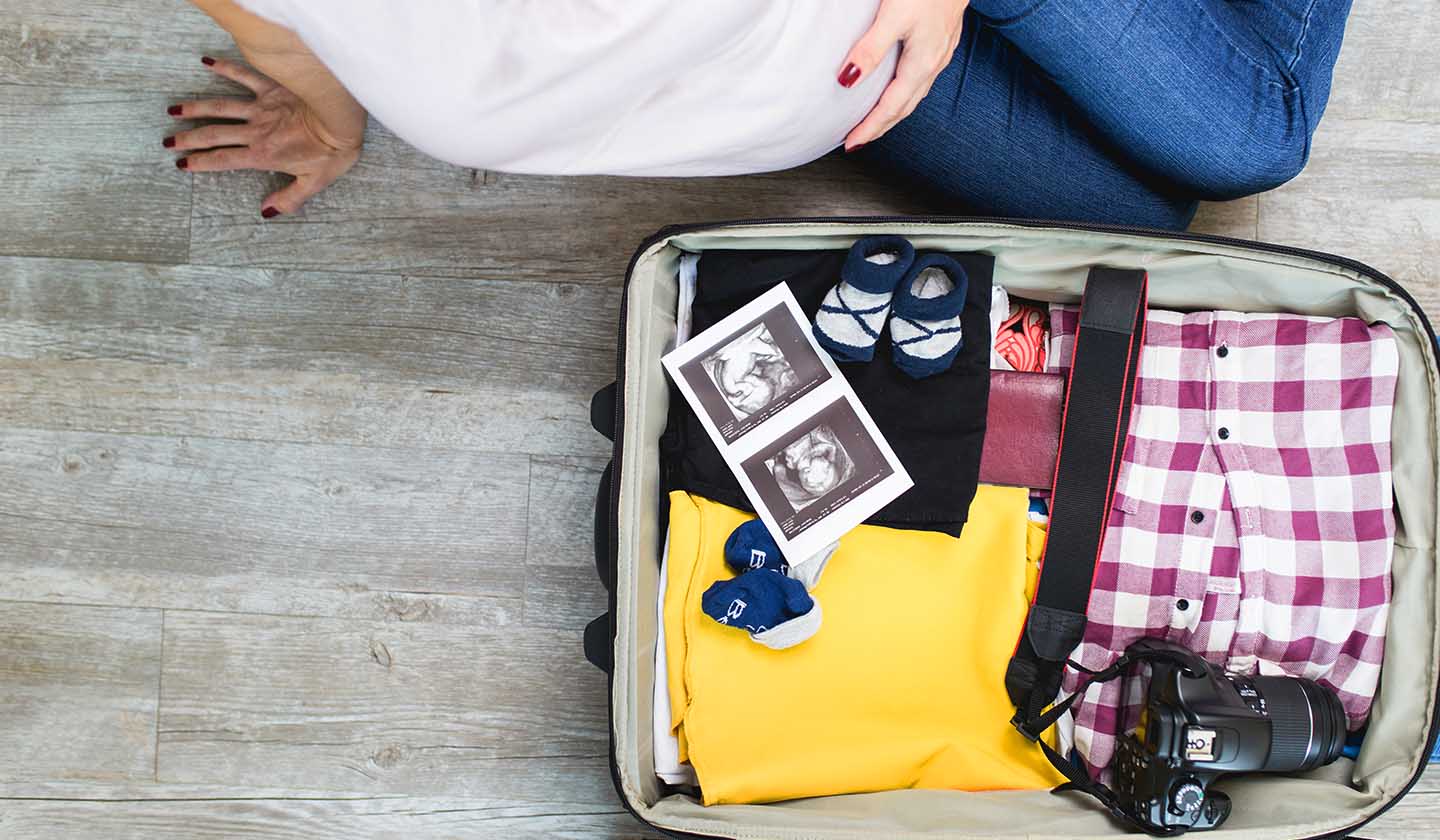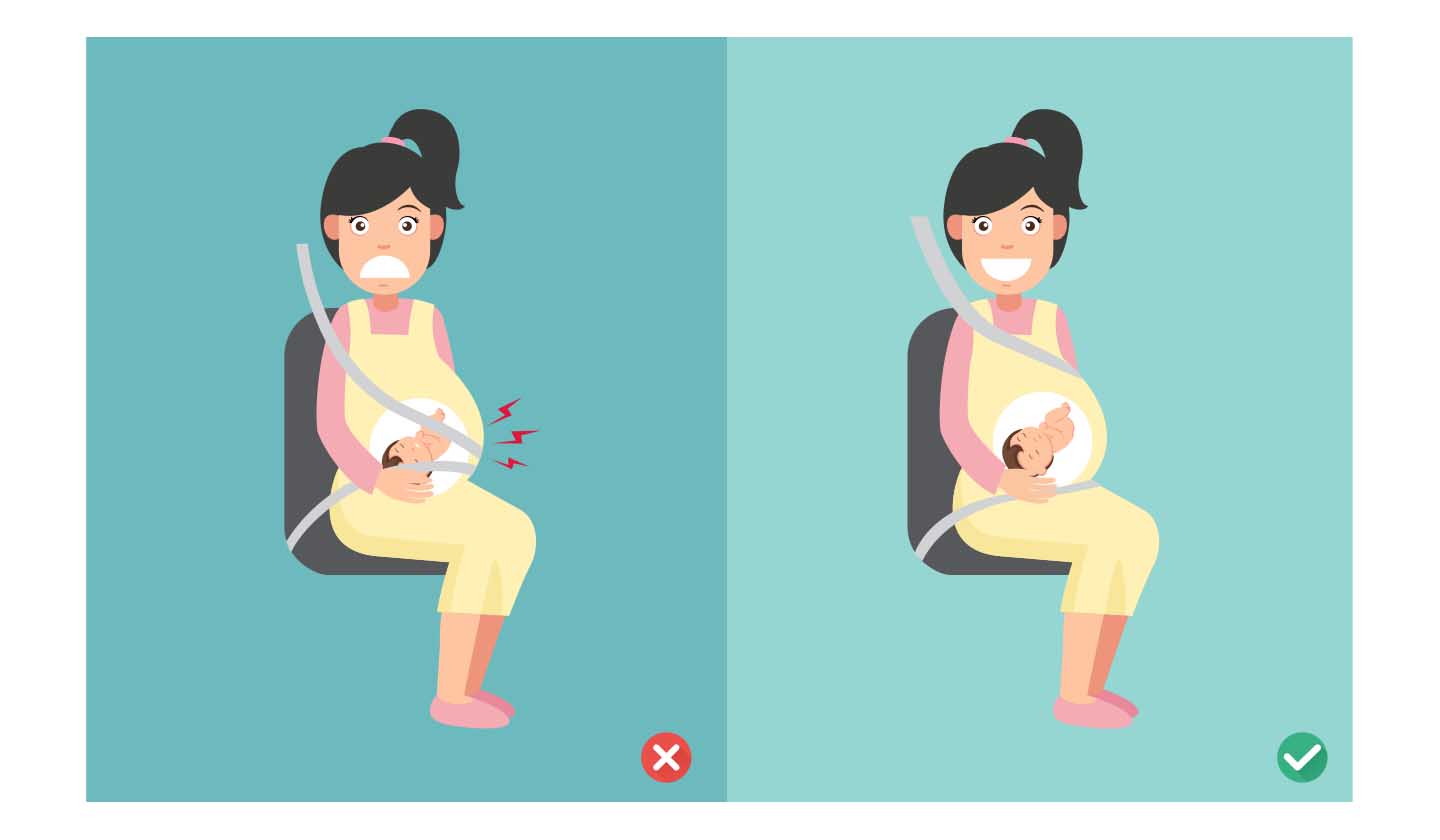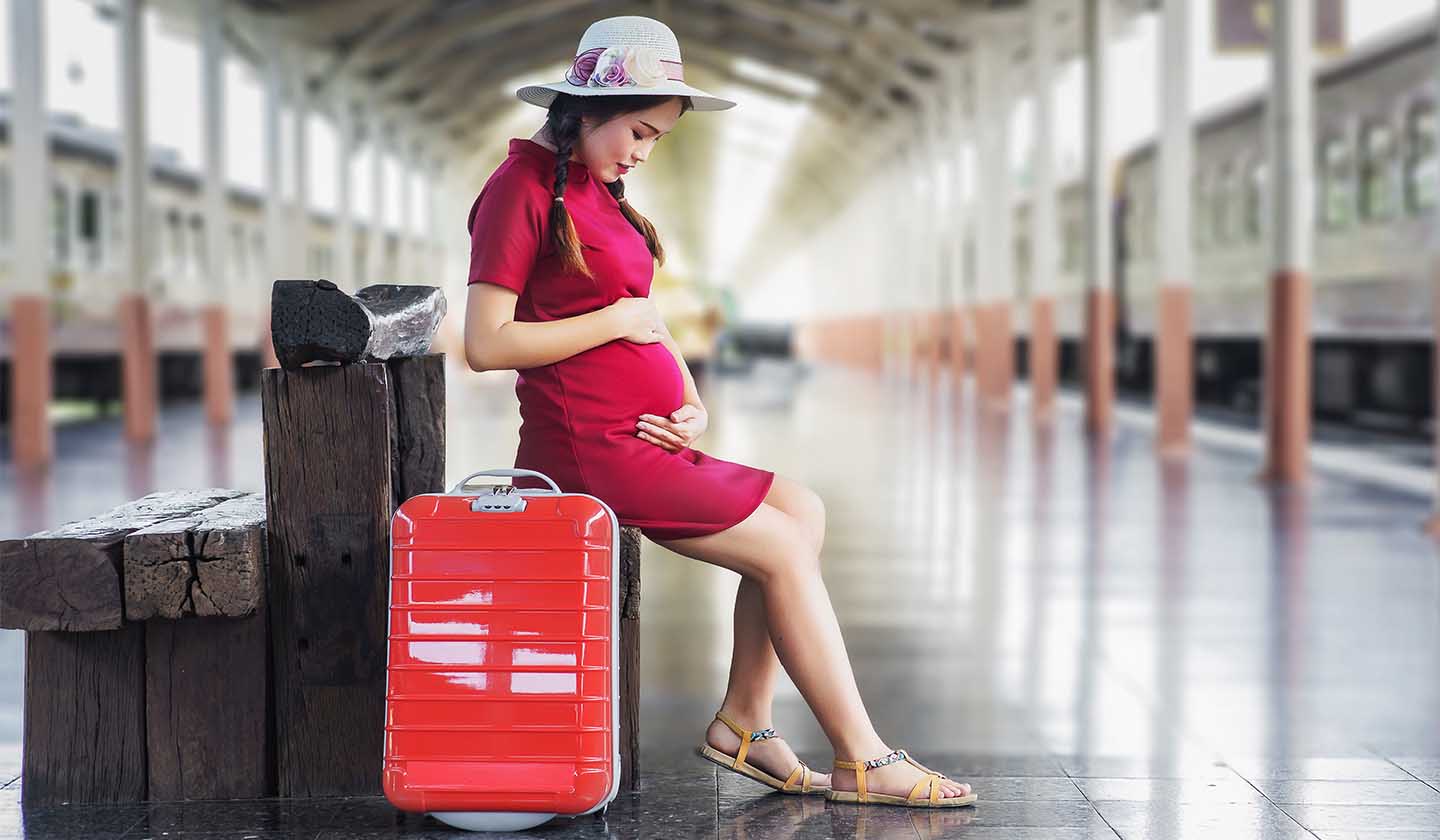Pregnancy
Pregnancy - Traveling without stress and motion sickness

Travelling is physically and psychologically healthy. We only need to be careful and follow some recommendations. Do not forget that your pharmacist can also answer any questions you might have.

Is the seat belt dangerous for the pregnant woman?
A seat belt is absolutely necessary in any situation and at any stage of pregnancy.
It is important to fasten the seat belt correctly. Thus, the lower part of the belt must be placed as low as possible under the belly and the diagonal part of the belt must pass between the chest and be placed beside the belly.

Can I travel during pregnancy?
The safest time to travel will be during the 2nd trimester of pregnancy, as the risks of miscarriage or premature birth are greatly reduced at this stage.
If you decide to travel, keep some aspects in mind:
-
Talk to your doctor before travelling to find out if there is any risk in doing so or if you have to take extra care;
-
Find out about the risk of getting a disease in the country you want to travel to and if this risk exists, it is best to postpone the trip;
-
Avoid long trips by car and avoid uneven routes;
-
If travelling by plane, get up and walk a little every hour, if possible, to stretch your legs and improve circulation; you should wear compression stockings and avoid sitting for too long.
-
During your travel, while you are sitting, make stretching movements with your feet and legs;
-
Airlines have their own policy on this matter, so you should check with the airline first. As a rule, they allow you to travel up to 36 weeks of pregnancy or 32 weeks in the case of multiple pregnancies, but only in case of uncomplicated pregnancies. It is also necessary to hold, as of 28 weeks of pregnancy, a medical certificate stating that the pregnancy is not at risk and that there are no impediments to travel by plane;
-
When flying, it is important to stay hydrated by drinking water frequently (the air in the aircraft cabin is drier).

Will I feel sick during the 9 months? How about heartburn?
Nausea is more frequent during the first trimester of pregnancy and affects most pregnant women. It is not common for nausea to last beyond the first 3 months.
The cause for feeling sick is thought to be the hormonal changes (increased levels of oestrogen and beta-HCG hormone) that occur mainly in early pregnancy.
Heartburn in pregnancy is quite common and it usually sets on in the second or third trimester of pregnancy, that is, it tends to be more frequent as the pregnancy progresses.
The cause will be increased abdominal pressure (due to the increase in the volume of the uterus) and increased levels of progesterone throughout pregnancy. The increase in the concentration of this hormone is responsible for the decrease in gastroesophageal and intestinal motility, and greater relaxation of the sphincters (including the gastroesophageal sphincter), resulting in the reflux of the stomach contents into the oesophagus.
If heartburn and nausea are too bothersome, there are products that can help you feel better. Ask your pharmacist for help or talk to your doctor.
Sources
iSaúde
Farmácia Distribuição Magazine






